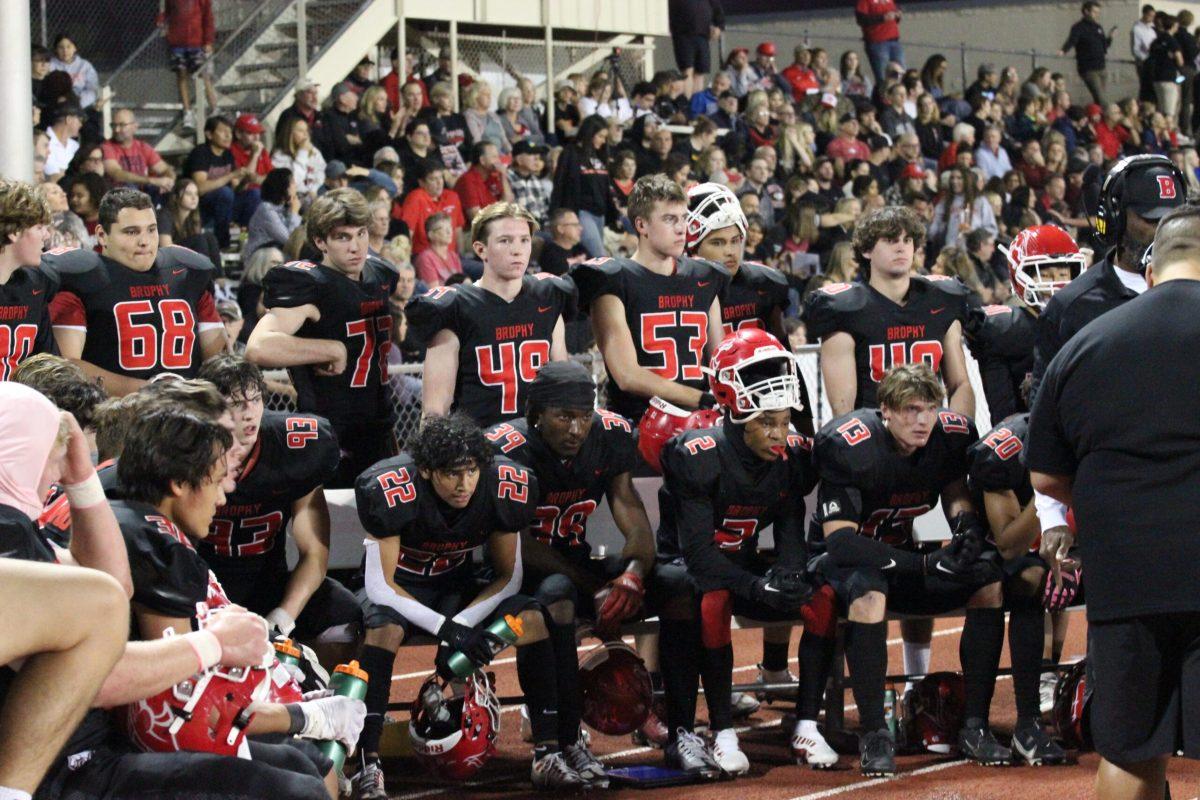Photo by: Ian O’Riley ’24
It all starts with a sticker on the back of the family car promoting the favorite child’s sports. After this comes the overly aggressive cheering and love at the soccer game. In the end, the parents send their husk of a child off to college after years of being pressured to play a sport they have no passion for.
Parental stressors on their children in sports have been shown to increase the likelihood of dropout and sports injury according to a study published by the Hungarian University of Sports Science. It has also been shown to worsen the mental health of participating athletes, and too much pressure can strain parental relationships.
A student at Brophy was forced to play football by his parents, but when he told them that he didn’t want to play anymore, they told him that they couldn’t support his decision and disapproved. He shared his story saying that “almost everyone knows except for my parents,” but he didn’t want to share his name because he was scared of getting into trouble with his parents.
“My brother was a D1 football player, so that’s why the pressure was on me to follow in his steps, but when I didn’t want to do that [my parents] kind of flipped and got mad at me,” the student said.
He said that the pressure from his parents really strained his relationship with them, and he said that the way he felt due to their treatment of his participation in football made him feel unvalued and unloved.
Parent pressure can also result in resentment of sports that an athlete may have had a true passion for. Pressure to perform takes a lot of the personal drive, motivation and eventual satisfaction out of sports, and it takes the focus of sports from the athlete to the parents.
“I had a really good coach, and that helped me attach to the game. I got through the season and decided I didn’t want to do it, and my parents said I would lose all my friends and support,” the student said.
Parents have a lot of control over their children’s emotions and choices, and their input on their children’s choices in sports carries a lot of weight. When they disapprove, it can feel like emotional manipulation or a lack of love. Even well-meaning parents can put pressure on their children in a way that can severely harm the relationships within the family and the mind of the child.
“My brother got recruited from Horizon football, and they [parents] wanted me to get a scholarship too,” the student said. “My dad is a football coach, but he didn’t care. My mom had a fit, and it strained our relationship. I got much closer with my dad, but it has made my relationship with my mom more distant.”.
His parents applied pressure on him as a sort of vicarious enjoyment as he explained. He said that accomplishments in sports felt like they were for his parents’ benefit over his own and that they wanted a reason to brag about him rather than support him.
Students can also feel pressure from their parents regarding their athletic performance in regard to college recruiting and applications. Pressure about college sports can make the environment of a sport very tense and stressful, and it takes a lot of enjoyment out of being part of a team.
Sports are designed to be competitive, but they are also a place to bond and have fun, and parent pressure to perform goes against everything that sports attempt to give their participants. Sports only add to the strain on a child’s mind when they are considered a mandatory activity instead of a retreat from other outside stress.
Pressure can be a good thing in some circumstances, but too much parental pressure can lead to resentment and dissatisfaction in sports. It can wreak havoc on the minds of the children being forced by their parents to participate in sports they don’t enjoy, and it puts an unhealthy strain on the familial relationship that is supposed to be built on support and growth.



















